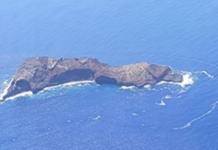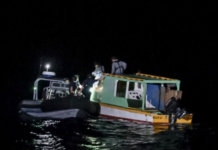The New Zealand government will deploy two additional detection dogs to Tonga as part of ongoing efforts to strengthen border security and combat illicit drug trafficking in the Pacific.

The move follows the ‘Aisake Eke government’s concerns over the lack of inspections of yachts arriving from overseas in Tonga.
The New Zealand initiative focuses on high-risk entry points, including ports frequented by yachts, with Tonga’s Vava‘u group set to receive the new canine units.
The move follows recent warnings from Tonga’s Minister of Police, Piveni Piukala, who raised alarms over gaps in maritime inspections.
Minister Piukala revealed that a yacht recently sailed unchecked from Vava‘u to Tongatapu, despite claims it had been inspected earlier.
“I was informed the yacht had already been cleared in Vava‘u, but this is, in my view, something to relook at. Every vessel must undergo fresh inspections at each port to prevent smuggling,” Piukala previously said in Tongan.
He emphasised the need for stricter protocols to close loopholes in maritime surveillance.
Canine Units: A High-Risk, High-Reward Tool
The detector dogs operate in a dangerous environment, as highlighted by the unsolved 2019 poisoning of Eto, a New Zealand-trained narcotics dog in Fiji.
Eto had helped seize millions of dollars’ worth of drugs before her death, which remains unresolved.
The Pacific Islands Detector Dog Programme, funded by New Zealand and implemented by New Zealand Police, has already placed trained dogs and handlers in Tonga, Fiji, Samoa, and the Cook Islands, 1News reported.
The expansion to Vava‘u aims to curb drug trafficking amid rising regional concerns, it said.
With the new canine teams, Tonga hopes to disrupt smuggling networks while honouring the legacy of fallen detection dogs like Eto.
In 2024, New Zealand detector dog Iti was on hand to help protect Pacific leaders and delegates at the Pacific Islands Forum Leaders Meeting in Tonga.
New Zealand provides trained police dogs to the Pacific region, including Tonga, Samoa, Fiji, and the Cook Islands, through the PDDP (Pacific Detector Dog Programme).







